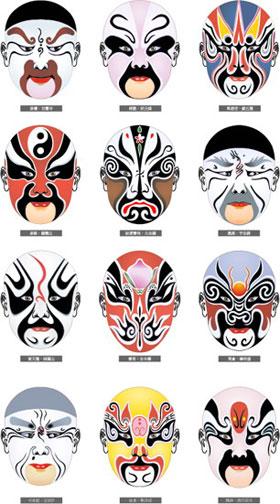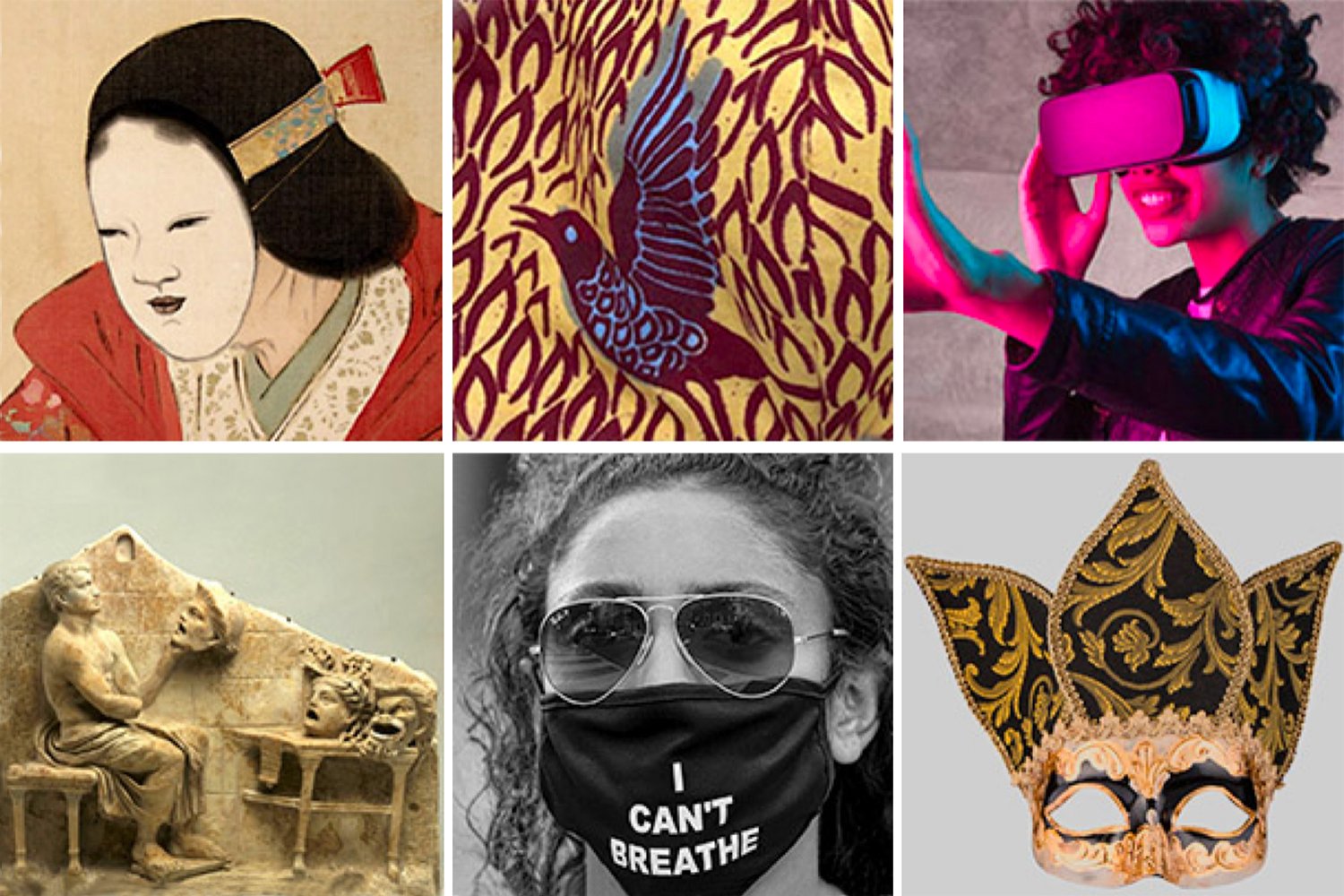Masks often symbolize supernatural beings, ancestors, and imaginative figures, as well as portraits, carrying religious and social significance. They are used in ceremonies and rituals, representing cultural, spiritual, and mythological themes.
Masks are also metaphorical, signifying fear, isolation, safety, and concern for others. The wearing of masks during a pandemic, for instance, signifies a badge of honor, demonstrating a commitment to protecting the health of others. In various cultures, masks are associated with funerary customs, fertility rites, and dramatic performances, portraying characters and mythological events.
As a result, masks hold diverse meanings and play significant roles in different contexts, reflecting both individual and collective values and beliefs.
The Essence Of Masks In Human Culture
Masks have played a significant role in human culture for centuries, symbolizing various aspects of spirituality, tradition, and artistic expression. Rooted in ritual and ceremony, masks have served as powerful tools to connect with supernatural beings, honor ancestors, and portray mythological events. Additionally, masks have found their place in theatrical performances throughout history, captivating audiences with their transformative qualities and ability to bring characters to life. Let’s explore the rich symbolism of masks, delving into their roots in ritual and ceremony as well as their theatrical uses across history.
Roots In Ritual And Ceremony
Masks have deep roots in ritual and ceremony, serving as conduits between the spiritual and physical realms. In many cultures, masks are believed to embody supernatural beings and ancestors, carrying their wisdom, protection, and power. These masks are meticulously crafted to capture the essence of the spirits they represent, with intricate designs and embellishments that reflect their divine nature.
During religious ceremonies and festivals, masks are worn by individuals who take on the role of these supernatural beings, connecting with their energy and embodying their characteristics. The act of wearing a mask is seen as a sacred ritual, allowing the wearer to transcend their own identity and become one with the spirit they depict. This transformative experience not only honors the divine but also serves as a means of seeking guidance, healing, and spiritual connection.
Theatrical Uses Across History
Masks have long been utilized in theatrical performances to bring stories to life and engage audiences in a visually captivating manner. In ancient Greek theater, actors wore masks to portray different characters, amplifying their expressions and emotions. These masks allowed the actors to embody the essence of the characters they played, enhancing the dramatic effect and immersing the audience in the story being told.
Throughout history, masks have continued to be integral to various theatrical traditions, from traditional Japanese Noh theater to African tribal performances. The use of masks in theater serves multiple purposes – they can symbolize specific characters, evoke emotions, or even represent cultural archetypes. The transformative power of masks allows actors to step into different roles, transcending their own identities and immersing themselves in the narrative.
Moreover, masks in theater have the ability to transcend language barriers, as the visual impact of a mask can convey meaning and emotions that words alone may not capture. They add an element of mystery, intrigue, and symbolism to the performance, leaving a lasting impression on the audience.
In conclusion, masks hold great significance in human culture, representing a myriad of meanings and serving as powerful tools for spiritual connection, artistic expression, and theatrical storytelling. Whether rooted in ancient rituals or adorning the stages of modern theaters, masks continue to captivate and fascinate us with their ability to transcend boundaries and convey profound symbolism.
Masks As Vessels Of Supernatural Power
Masks serve as vessels of supernatural power, symbolizing supernatural beings, ancestors, and imagined figures. They hold religious and social significance, often used in ceremonies, rituals, and dramatic performances to portray characters or convey mythological events. The specific spirit localized in a mask is of great importance, giving it purpose and meaning.
Channeling Ancestral Spirits
Masks have long been recognized as vessels of supernatural power, capable of channeling the energy and presence of ancestral spirits. In many cultures, masks are used in religious and ceremonial practices to establish a connection with the spiritual realm. The belief is that by wearing a mask, one can embody the essence of their ancestors, enabling them to communicate with and seek guidance from the spirit world. The significance of channeling ancestral spirits through masks lies in the deep-rooted respect and reverence for one’s lineage. It is believed that the wisdom and knowledge of past generations can be accessed and shared through the wearing of these sacred masks. This practice not only strengthens the bond between the living and the deceased but also serves as a means of preserving cultural heritage and passing down ancestral traditions.Embodying Mythical Entities
Masks also serve as vessels for embodying mythical entities and creatures from folklore and mythology. These masks often depict fantastical beings such as gods, goddesses, demons, and legendary creatures, each with their own symbolic significance. By wearing these masks, individuals can temporarily transform themselves into these mythical beings, embodying their qualities, powers, and characteristics. The act of embodying mythical entities through masks allows individuals to tap into the supernatural realm and access the extraordinary abilities associated with these beings. It is believed that by assuming the identity of these mythical entities, individuals can harness their power and use it for various purposes, such as healing, protection, or invoking blessings. In addition to their spiritual and symbolic significance, masks embodying mythical entities are also used in performances and rituals, bringing stories and legends to life. These masks serve as visual representations of the mythical characters, captivating audiences and conveying the rich narratives and cultural heritage associated with them. In conclusion, masks as vessels of supernatural power have a profound impact on various aspects of human existence. Whether channeling ancestral spirits or embodying mythical entities, masks play a crucial role in connecting individuals to the spiritual realm and preserving cultural traditions. Their symbolic significance and transformative nature make masks an integral part of rituals, ceremonies, and artistic expressions across cultures worldwide.Masks In Social And Religious Contexts
Masks have held a significant place in various social and religious contexts, with their symbolism deeply ingrained in the cultural fabric of societies worldwide. From fertility rites to funerary customs, masks have played diverse roles in these settings, each carrying its unique importance and meaning.
Significance In Fertility Rites
In the realm of fertility rites, masks are revered for their association with the cycles of nature, birth, and growth. They often symbolize the interconnectedness of life and the cyclical nature of fertility, serving as potent symbols of abundance and the perpetuation of life.
Roles In Funerary Customs
Within funerary customs, masks hold profound significance as they are used to honor and remember the departed. These masks often serve as a representation of the deceased, acting as a conduit to the spiritual realm and embodying the enduring presence of the departed individual within the community.

Credit: www.vecteezy.com
Psychological Implications Of Mask-wearing
The symbolism of masks holds psychological implications for individuals wearing them. Masks can represent fear, isolation, and lack of freedom, triggering a desire to return to “normal. ” However, for others, masks symbolize safety, awareness, and concern for self and others, reflecting a willingness to sacrifice for the common good.
Psychological Implications of Mask-Wearing The COVID-19 pandemic has led to the widespread use of masks. While masks are crucial for preventing the spread of the virus, they also have psychological implications. In this section, we will explore the psychological implications of mask-wearing, specifically focusing on concealment and identity, as well as the emotions behind the mask. H3: Concealment and Identity Masks have the ability to conceal one’s identity, making it difficult to read emotions or identify individuals. This lack of identification can lead to feelings of detachment and isolation. According to a study published in the Journal of Personality and Social Psychology, concealment of one’s face can lead to a decrease in empathy and an increase in aggressive behavior. Masks can also lead to a decrease in self-expression. Facial expressions are an important part of communication, and when they are hidden, it can be difficult to convey emotions effectively. This can cause individuals to feel restricted or inhibited, leading to a sense of discomfort or unease. H3: Emotions Behind the Mask The emotions behind the mask are also an important aspect of the psychological implications of mask-wearing. Masks can make it difficult to read emotions, which can be especially challenging for individuals who rely on facial expressions to communicate effectively. Wearing a mask can also make individuals feel vulnerable or anxious. This is because masks can be a reminder of the risks associated with the COVID-19 pandemic. Additionally, the act of wearing a mask can cause individuals to become more aware of their breathing, leading to feelings of discomfort or anxiety. In conclusion, the psychological implications of mask-wearing are complex and multifaceted. Masks can lead to feelings of isolation and detachment, as well as a decrease in self-expression. They can also make it difficult to read emotions and cause individuals to feel vulnerable or anxious. However, masks are an essential tool in preventing the spread of COVID-19, and it is important to continue to wear them to protect ourselves and those around us.Masks As Metaphors In Modern Society
Masks serve as powerful metaphors in modern society, symbolizing various meanings and emotions. For some, masks represent fear, isolation, and a lack of freedom, while for others, they embody safety, awareness, and concern for self and others. They can also hold religious and social significance, representing supernatural beings, ancestors, and mythological events.
Masks are not only a physical necessity during a pandemic but also a badge of honor, signifying the commitment to protecting the health of others in times of crisis.
Symbols Of Fear And Safety
Masks have become a symbol of both fear and safety in modern society. For some, the act of wearing a mask represents the fear of contracting or spreading a contagious disease. Others see it as a safety measure, a way to protect themselves and those around them. The symbolism of masks has become even more important during the COVID-19 pandemic, as governments around the world have made mask-wearing mandatory in public spaces.Expressions Of Social Responsibility
Masks have also become a symbol of social responsibility. By wearing a mask, individuals are not only protecting themselves but also showing concern for the health and safety of others. It has become a way to express solidarity with the community and a willingness to sacrifice personal comfort for the greater good. In modern society, masks have taken on a new meaning beyond their traditional cultural and ceremonial significance. They have become a metaphor for our collective response to a global crisis, a symbol of our willingness to adapt and protect each other. As we continue to navigate this pandemic, the symbolism of masks will continue to evolve and shape our understanding of public health and social responsibility.
Credit: www.vectorstock.com
Cultural Masks And Their Symbolic Functions
Cultural masks serve as powerful symbols, often representing supernatural beings, ancestors, or imagined figures. They hold significant religious and social importance and are used in ceremonies, dramatic performances, and mythological reenactments. These masks play a crucial role in various cultural traditions and rituals, embodying deep symbolic meanings within different societies.
Portraits Of Social And Political Climate
Cultural masks have been used for centuries to represent various aspects of a society’s social and political climate. These masks serve as a reflection of the community’s beliefs, values, and traditions. They can also depict the current state of the society, including economic and political conditions. For example, some African masks represent the struggles of the community during colonization, while others represent the power and authority of tribal leaders.Representations In Festivities And Drama
In addition to their symbolic functions, cultural masks are also used in festivities and drama. They are often used to portray characters in plays and reenactments of mythological events. They can also be used to celebrate important ceremonies, such as funerary customs and fertility rites. Furthermore, some cultures use masks to ward off evil spirits and protect the community from harm. In conclusion, cultural masks play an important role in society. They serve as a reflection of a community’s beliefs, values, and traditions, and are used to represent various aspects of the social and political climate. Additionally, they are used in festivities and drama to portray characters and celebrate important ceremonies. The symbolism of masks is diverse and varies from culture to culture, but their importance and significance remain constant.The Transformation Of Mask Symbolism During Pandemics
Amid pandemics, the symbolism of masks has evolved significantly, transitioning from representing supernatural beings and ancestors to becoming a badge of honor and a symbol of protection. The cultural significance of masks has transformed, reflecting the collective responsibility to safeguard public health during crises.
From Stigma To Badge Of Honor
The symbolism of masks has undergone a significant transformation during pandemics. In the past, masks were often seen as a symbol of sickness and disease, and those who wore them were stigmatized as carriers of illness. However, in recent times, the wearing of masks has become a badge of honor, indicating a commitment to protecting oneself and others from the spread of disease. Wearing a mask during a pandemic is not only a responsible act but also a sign of solidarity with those who are vulnerable to the disease. It is a way of showing that you care about the health and well-being of your community and are willing to take steps to protect it. As such, wearing a mask has become a symbol of strength and resilience in the face of adversity.Unification Versus Division
The wearing of masks during a pandemic has also highlighted the importance of unity and collaboration. In times of crisis, it is essential that we work together to overcome the challenges we face. Wearing a mask is a way of showing that we are all in this together and that we are committed to doing our part to protect ourselves and others. However, the symbolism of masks has also revealed underlying divisions in our society. The politicization of mask-wearing has created a divide between those who believe in the importance of wearing masks and those who do not. This division has often been fueled by misinformation and has led to conflict and tension in many communities. In conclusion, the symbolism of masks has evolved significantly during pandemics. From being stigmatized as a symbol of sickness and disease, masks have become a badge of honor, indicating a commitment to protecting oneself and others. However, the politicization of mask-wearing has also revealed underlying divisions in our society. It is important that we recognize the importance of unity and collaboration during these challenging times and work together to overcome the challenges we face.The Future Of Masks And Their Symbolic Evolution
Masks have always held a deep symbolic meaning across various cultures, serving as a powerful representation of tradition, spirituality, and identity. As the world continues to evolve, the symbolism of masks is also undergoing a transformation, impacting the way they are perceived and integrated into cultural narratives.
Potential Shifts In Perception
As society adapts to new norms and challenges, there is a potential for a shift in the perception of masks. From being primarily associated with protection and anonymity, masks may start to symbolize unity, empathy, and resilience. This shift can redefine the way masks are viewed, moving beyond their functional aspect to embody a sense of collective responsibility and solidarity.
The Lasting Impact On Cultural Narratives
The evolution of the symbolic meaning of masks will have a lasting impact on cultural narratives. It can shape the way masks are represented in art, literature, and media, influencing the stories they tell and the emotions they evoke. This evolution can contribute to a richer, more nuanced understanding of the role of masks in different societies, reflecting the changing dynamics of human interaction and expression.

Credit: www.cctv.com
Frequently Asked Questions
What Does A Mask Symbolize?
Masks symbolize supernatural beings, ancestors, and imagined figures, with religious, social, and ceremonial significance. They can represent fear or safety, and are used in dramatic performances and mythological events. During a pandemic, masks also symbolize a commitment to protecting the health of others.
What Is The Spiritual Meaning Of The Mask?
Masks have spiritual significance, representing supernatural beings, ancestors, and imagined figures. They hold religious and social importance.
What Is A Mask Metaphorically?
Metaphorically, a mask can symbolize fear, isolation, and lack of freedom for some, while representing safety, awareness, and concern for others. It may signify a desire to return to “normal” or a willingness to sacrifice for the common good. Masks can also have religious, social, and cultural significance, representing supernatural beings, ancestors, or specific rituals and ceremonies.
What Do Cultural Masks Represent?
Cultural masks represent various things such as supernatural beings, ancestors, imagined figures, and portraits. They hold religious, social, and ceremonial significance, and are used in funerary customs, fertility rites, dramatic performances, and mythological reenactments. Masks can also symbolize safety, awareness, and sacrifice for the common good.
What Is The Symbolism Behind Masks?
Masks often symbolize supernatural beings, ancestors, and imaginative figures, serving religious and social purposes.
Conclusion
Masks hold deep cultural, spiritual, and symbolic meanings across various societies and time periods. They represent supernatural beings, ancestors, and mythological figures, while also conveying messages of safety, awareness, and sacrifice. During the pandemic, masks have become a badge of honor, signifying a commitment to protecting the health of others.

